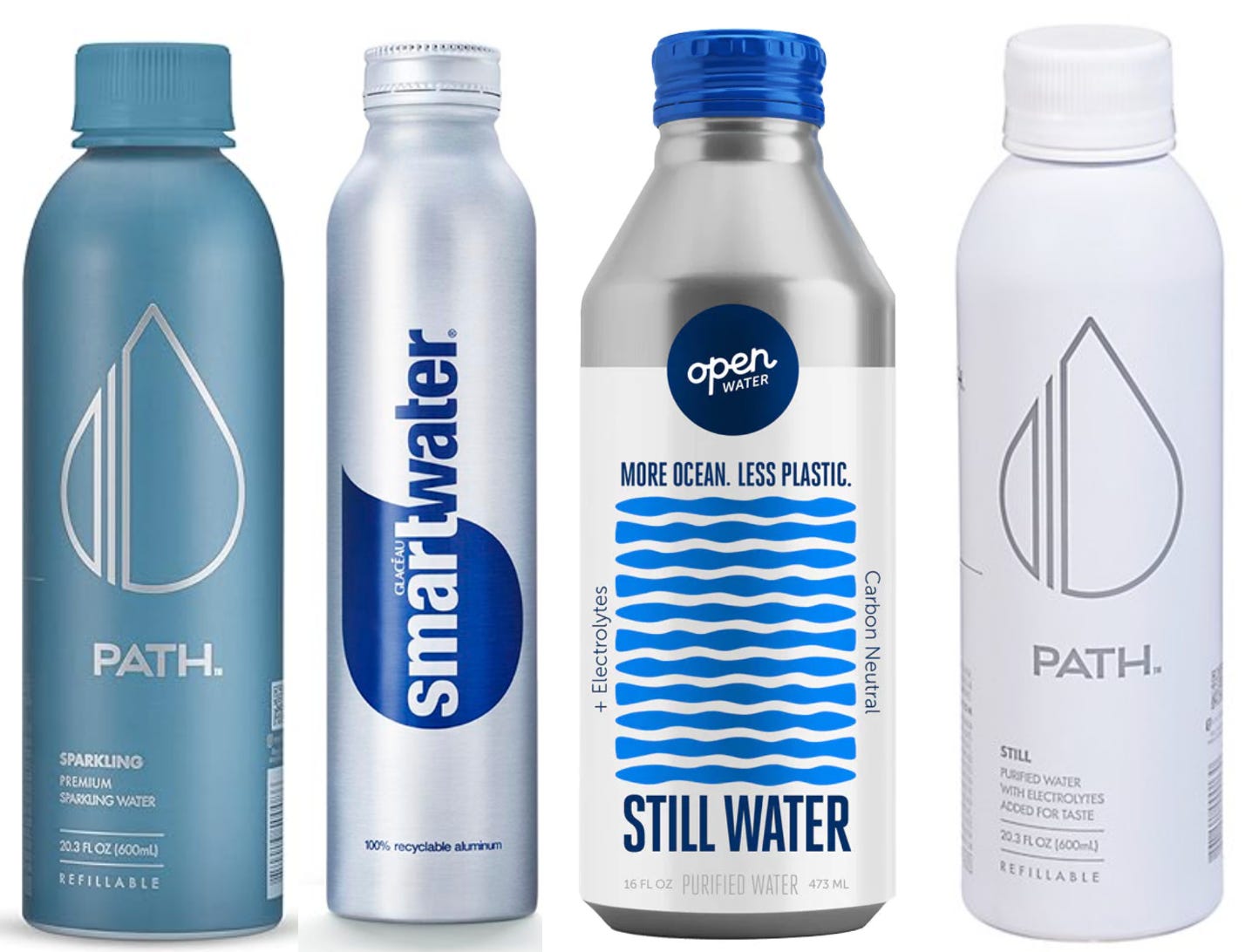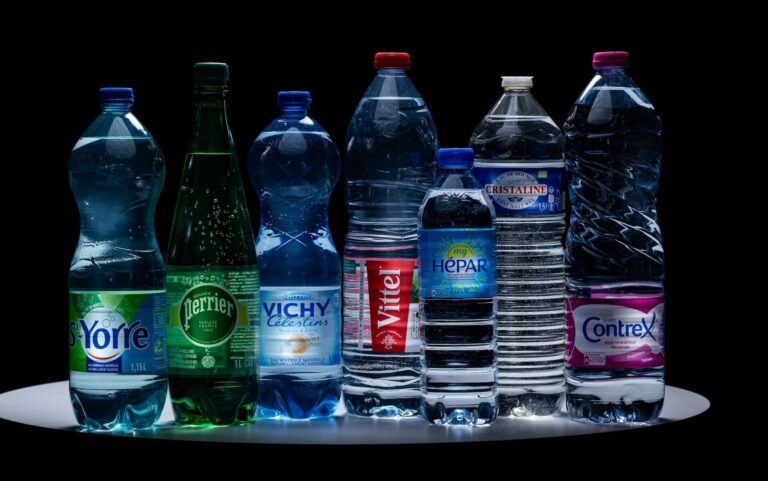Note: This article was authored by a Midwestern doctor.
I feel one of the biggest issues in modern medicine is that patients often don’t get the opportunity to establish a genuine relationship with their physician and hence often lack the critical voice which is necessary for a therapeutic doctor-patient relationship.
Because of this, my goal here was always to be able to correspond with everyone who reached out to me (e.g., through comments). Unfortunately, due to the unexpected success of this publication, I don’t have the time to both do that and to write here.
For that reason, I decided the best solution was to have monthly open threads where people could ask whatever they wanted on any topic and I would make a point to always reply to them.
In tandem with these open threads, I try to have them tie to a subject that I feel is important to cover, but doesn’t quite merit being the focus of an entire article.
For this month’s post, I would like to share my perspectives on what type of water you should drink (but since this is an open thread, feel free to also ask about anything else).
Note: in the last open thread, I surveyed which future article topics had the most interest and I am presently working on one about The Great Osteoporosis Scam since it was one of the most requested topics.
The Water Industry
Over the decades I’ve worked in the holistic health field, I’ve noticed device after device hit the market which claims to produce the optimal source of water for you to drink, frequently has a lot of marketing behind it, and in many cases, then fades into obscurity and is forgotten.
This in turn has led me to cynically conclude the primary reason why these products are created is because they are easy to market, not because they are necessarily helpful.
Presently, I believe the following:
•There are so many nasty thing in the water and any filter that can remove them is better than nothing.
•Many of the things you want to take out (e.g., fluoride) can only be taken out by a reverse osmosis water system, so if at all possible you should use one of them.
•There are a variety of other decent water filtration methods many people get invested in, and may have specific advantages (e.g., Berkey water filters are gravity fed so they can be operated without electricity or an existing water pressure) but they are simply not as good at filtering as a reverse osmosis system.
•I do not like alkaline water filters (as I believe it is not good to neutralize your stomach acid) and I believe many of the benefits attributed to alkaline water filters come from how alkalinity can somewhat improve zeta potential or the fact that alkaline water generators often produce molecular hydrogen in the water.
Note: as Dr. Mercola discusses here, it is fairly unlikely alkaline water devices will actually change your pH.
•There are a variety of products which “energize” or “structure” water. Some people (e.g., those belonging to the “sensitize constitutional archetype”) find they help, but having explored this for years, all I can say is that the results vary immensely depending upon the product and the person who uses it.
•The one (recent) innovation I’ve repeatedly seen provide some degree of benefit to users are the hydrogen water bottles (which electrolyse water so it becomes full of dissolved hydrogen and oxygen—which may also provide some of the benefit of the water).
Many of the devices that do this are fairly cheap, so I believe if you want to experiment with a water product to see if it benefits you (e.g., some athletes find drinking hydrogen water increases their endurance) it’s the one to try.
CLICK HERE TO READ MOaRE FROM THE REPUBLICAN VOICE
Note: these is a significant amount of scientific evidence demonstrating the benefits of hydrogen water for a variety of conditions. Much of it has been compiled by The Molecular Hydrogen Institute.
•I like fresh spring water, but the value of it again varies immensely depending on the spring (a few are very good, many however are not).
Additionally, I find long term consumption of spring water frequently causes issues for people due to the dissolved (positively charged) minerals disrupting their physiologic zeta potential (e.g., I know a few people who went on prolonged spring water diets who then developed cardiac arrhythmias).
Finally, I believe if you want to store spring water, it needs to be stored in glass, as otherwise it loses the enlivening quality many attribute to spring water.
Note: when I was younger I spent a lot more time exploring spring water, but now that I live in a part of the Midwest that doesn’t have any springs to drink from, I’ve stopped doing that. For those sincerely interested in the topic, people around the world have spent years compiling a list of springs around the world on this website.
•I believe one of the most important but least appreciated water filtration needs is for showers. This is because once water is heated, chlorine will off gas from water, which results in people frequently breathing it significant amounts of it in while showering.
In turn, I and many others have found a subset of patients (e.g., singers or those with a sensitive throat) find certain chronic symptoms improve once they get a chlorine shower filter, and likewise that it feels much better for the skin and hair if they use a dechlorinated shower.
CLICK HERE TO READ MOaRE FROM THE REPUBLICAN VOICE
Given that shower chlorine filters cost very little and last for a long time, I believe they are an excellent health investment.
•Generally speaking, I believe you should not have ice in the water you drink. This is partially because the ice often comes from very dirty sources (especially on airplanes) and partially because it adversely affects your digestion (which for instance is why Chinese Medicine they advise many patients to not have cold drinks with meals).
Lastly, there are a variety of water products I believe sometimes have merit (e.g., Quinton Water), but since there are so many of them out there, I feel going into those is beyond the scope of a monthly open thread.
Reverse Osmosis Water
Throughout my life, I’ve seen a variety of things suggesting reverse osmosis (RO) water is the ideal liquid to drink. I believe many of the benefits of RO water are a result of some combination of the following:
•As mentioned before, RO is the most reliable way to remove toxins from water (although this requires having good quality filters which proceed the RO step).
•RO breaks water into much smaller clusters, which in turn makes it easier for that water to enter the cells of the body.
•The water being deionized by RO improves the physiologic zeta potential.
Note: distilled water also deionizes water.
In turn, we frequently find RO water just “feels good” to drink, and I often see patients experience clear benefits when they start drinking RO water.
Conversely, since selling water is such a competitive business, each business will come up with a variety of reasons to attack competing products.
In the case of reverse osmosis (RO) water, some of the most common arguments I’ve see raised against it are that it depletes you of vital minerals, its production process wastes a lot of water and it leaches toxins from its containers.
In my own experience, the first point primarily holds true for magnesium. This is because:
•Our bodies are quite sensitive to lowered magnesium levels (e.g., this can cause heart arrhythmias or muscle pain).
•We often depend upon water for our daily magnesium intake
•Many foods are now magnesium deficient (due to modern agricultural practices having demineralized the soil and the herbicide Roundup binding many of the essential minerals that remain in the soil), and as a result widespread magnesium deficiencies already exist.
For these reasons, I often advise people who plan to drink RO water for a prolonged period to also take a magnesium supplement (preferably magnesium threonate, malate, orotate or citrate—magnesium oxide is not good).
I don’t really agree with the second point, because while extremely inefficient RO systems exist (e.g., ones that waste 95% of the water you put into them) most waste between 20%-75% of the water during the filtration process.
Given that people drink 3 liters of water per day, this translates to around 10 liters of water being wasted per day, which is equivalent to 1-2 toilet flushes or someone spending about one minute in the shower.
In short, since, 10 liters is around 2.6% of the average amount of water someone uses, I feel focusing on that point is primarily being done for the sake of the argument (e.g., to promote another product) not because it’s actually relevant.
In regards to the leaching perspective, I think this can be a valid point (e.g., if RO water is stored in old plastic containers or tanks, it can develop a plastic taste).
For this reason, I try to store RO water in glass containers and make sure I don’t use a poor quality RO system to store water.
Note: conversely some people argue that RO’s ability to “leach” substances makes it helpful for detoxification protocols.
Reverse Osmosis Water and Zeta Potential
One of the greatest challenges in medicine is determining how much something actually helps people, as frequently the “benefit” is small and takes a long time to manifest.
In turn, one of the reasons I was so drawn to the zeta potential concept was that you (and the patient) would immediately notice significant differences once something was done to restore their physiologic zeta potential and conversely, I repeatedly saw serious complications immediately follow a disruption of one’s zeta potential (e.g., I’ve never forgotten a patient I met when I admitted her the hospital after she suffered a textbook zeta potential collapse from receiving a pneumococcal vaccine).
Zeta potential, briefly, quantifies the tendency of particles that are (colloidally) suspended in a solution to clump together or remained separated and dispersed from each other.
The degree of clumping present, in turn, determines how freely a fluid will flow, so when individuals have an impaired zeta potential, it will cause fluid stagnation throughout the body.
This fluid stagnation is often immensely consequential as almost every part of the body depends upon a healthy fluid circulation (e.g., people’s legs swell when fluid gets stuck in them and can’t flow back out).
The consequences of an impaired zeta potential are particularly apparent in the blood, as once blood cells begin to clump together, the circulation significantly diminishes and severe conditions like blood clots or strokes can follow.
Note: I consider impaired zeta potential to be the root cause of many illnesses.
Zeta potential is largely determined by the balance of positive and negative charges in the body. In turn, certain agents (particularly aluminum—which is present in most vaccines) have very strong positive charges which in tiny concentrations cause large amounts of fluid to clump together.
Because of this, we frequently observe individuals have severe consequences when exposed to a zeta potential reducing agent (e.g., many of the subtle neurological injuries which follow vaccination are due to microstrokes affecting the cranial nerves) and conversely, find that restoring the physiologic zeta potential is a critical component of rehabilitating these injuries.
Note: I believe many of the health “issues” people ascribe to consuming salt are actually due to the fact aluminum is frequently added to salt products.
Likewise, we’ve seen quite a few cases of someone having a stroke after they ate something cooked in aluminum, and I’ve read of many cases where a human or animal (e.g., a parrot) gradually developed a severe illness which went away after it stopped drinking water which was stored or cooked in aluminum.
This is particularly unfortunate because almost all non-stick cookware on the market either utilizes a toxic substance (e.g., teflon) or is comprised of a thin layer of the safe non-stick coating (e.g., ceramic) lining an aluminum pan which inevitably begins to peels off and expose you to the aluminum underneath.
Note: my renewed interest in zeta potential arose after I realized the COVID-19 spike protein had a collection of positive charges which made it extremely disruptive to the physiologic zeta potential, a problem which in turn became much worse once the vaccines entered the market (e.g., I would argue this is the primary cause of the microstrokes and many of the other chronic illnesses observed following vaccination).
Typically, the kidneys are responsible for maintaining the physiologic zeta potential, which they do by excreting the most problematic positive charges (e.g., aluminum) while retaining the beneficial negative charges.
In turn, since renal function declines with age, zeta potential worsens as well, and I believe many of the complications of aging are ultimately a result of a gradual loss of the physiologic zeta potential.
Note: I adopted the initial RO unit I used after I found out the local hospital was using it for patients with kidney failure because it was the only filtration system which effectively removed aluminum from water they used for dialysis (toxic levels of aluminum are a recurring issue for these patients).
A variety of approaches exist to improve zeta potential, but most of them essentially boil down to avoiding the problematic positive charges (e.g., reducing your aluminum exposure) and adding beneficial negative charges to the body.
In turn, I have found that many of the holistic therapies which have a wide range of positive benefits attributed to them (e.g., Earthing) all share the common thread of improving zeta potential.
Drinking deionized water forms a critical part of the zeta potential protocols because it eliminates many of the positive charges from the water you ingest which the kidneys would otherwise need to eventually eliminate.
This is particularly important because the kidneys function much more efficiently when they have a low workload on them (i.e., not having to work against as high of a positive ion concentration gradient in the blood).
In short, all of the pioneers of treating zeta potential found that while drinking deionized water or consuming the correct negative charges helped, both typically had to be done together for anyone with a significant zeta potential impairment.
This in turn has matched my own clinical and personal experience (as I am more sensitive to zeta potential disruptions—e.g., I’ve experienced minor microstrokes from eating food that was stored in aluminum).
Note: I’ve had quite a few older patients who switched from drinking RO water to well water and then developed a variety of unusual illnesses I was ultimately able to attribute to a loss of zeta potential (as well water contains a significant amount of positively charged minerals).
Water Containers
The specific thing which prompted me to write this article has been the recent health fad of aluminum containing bottled water, which I believe was done in response to people being concerned about plastic from both a health and environmental standpoint and it being possible to make more trendy looking “luxury” water bottles people would buy purely based on their appearance.

Note: technologies the industry wants to adopt are often initially marketed as specialty luxury products. For example, soy (which is often anything but healthy) was introduced to America first by having it be strategically placed in health food cook books to generate a “grass roots” demand for it.
I find this push we are seeing for aluminum containers (many celebrities and companies are now endorsing it) to be immensely frustrating as its proponents are frequently only seeing half of the picture.
For instance, while it is true that aluminum being possible to recycle significantly lowers its environmental footprint, this simultaneously ignores the fact that the the initial production of aluminum is incredibly energy intensive and environmentally destructive.
Likewise, while it is acknowledged that a “metallic taste” (of leached aluminum) is a downside of using aluminum bottles, those some people simultaneously argue aluminum cans are completely safe.
While in general it is still quite feasible to avoid these products, I find the proliferation of these products to be particularly frustrating in areas with captive markets where you need access to clean water.
For example, in many airports (particularly those in the more progressive areas) all the bottled water is gradually being switched to aluminum ones, and likewise certain airlines (e.g., Southwest) now exclusively offer water to passengers which was stored in aluminum cans.
Note: the original rationale for banning liquids from airports arose from a team of terrorists who allegedly plotted to bring liquid materials with them that were necessary to manufacture a solid bomb on the plane.
CLICK HERE TO READ MOaRE FROM THE REPUBLICAN VOICE
Since actually making the alleged explosive on a plane was almost impossible, this led me to believe there was an entirely different reason for banning the liquids (e.g., to have another activity that increased compliance with the war on terror, increasing drink sales in the airport or preventing passengers from making messes on the planes).
Sadly, this lie went unchallenged, and almost twenty years later, liquids being banned from airports has been normalized to the point almost no one questions it.


























